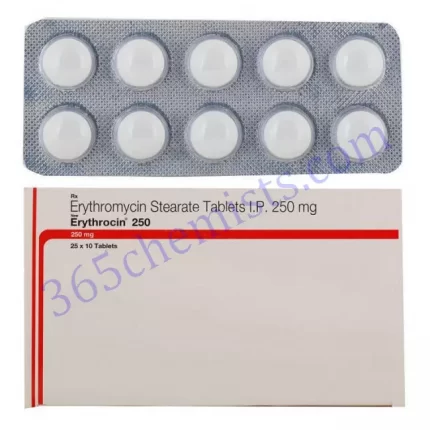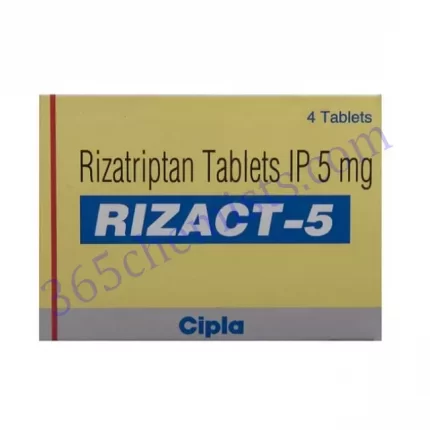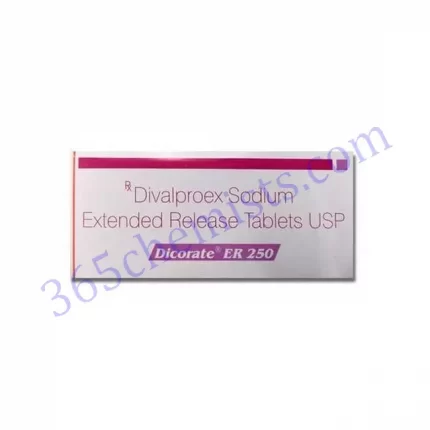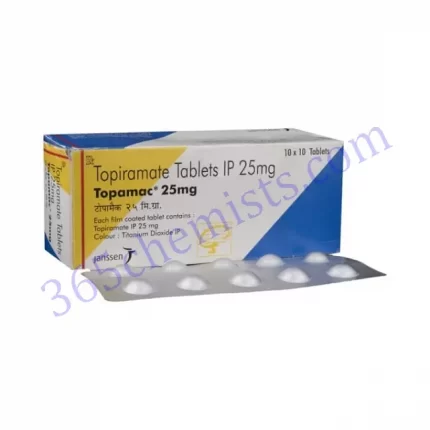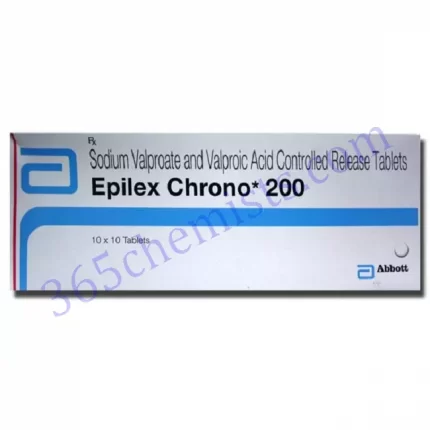Introduction
The drug Eptoin 100mg Tablet contains the active ingredient phenytoin. Epilepsy is a neurological condition characterised by recurrent seizures, and it is primarily used to treat this condition. This extensive guide offers useful details on Eptoin 100mg Tablet, including its applications, dosage, risks, and other issues.
Knowledge of Eptoin 100mg Tablet
The drug Eptoin 100mg Tablet is categorised as an anticonvulsant. It functions by balancing brain electrical activity, which either stops or lessens the frequency of seizures. According to the patient’s condition and response to the medication, doctors typically prescribe the tablet in the strength of 100mg.
Benefits and Uses
Eptoin 100mg Tablets are typically prescribed to treat epilepsy and prevent seizures. It works well to control a variety of seizures, including tonic-clonic, complex partial, and generalised seizures. Eptoin 100mg Tablet helps people with epilepsy live more normally by stabilising the electrical activity in the brain, which lowers the frequency and severity of seizures.
dosage and management
Eptoin 100mg Tablet dosage may change based on a patient’s age, health status, and response to treatment, among other considerations. It’s crucial to adhere to the healthcare provider’s instructions and the dosage that was prescribed. Typically, the tablet is ingested, either with food or not. It should not be crushed or chewed, but rather swallowed whole along with a glass of water.
To achieve optimal seizure control, the dosage is typically lower at first and gradually increased. The dosage should never be increased beyond the advised limits without first speaking with a healthcare professional. It is crucial to regularly monitor patients and follow-up with their doctors in order to assess the efficacy of the treatment and adjust the dosage as needed.
Related Product
Eptoin 100mg Tablet
Eptoin 300 ER Tablet
Eptoin Injection
Possible Side Effects
Like any drug, Eptoin 100mg Tablet may have unwanted effects in some people. Drowsiness, vertigo, headaches, nausea, and changes in coordination are some of the more frequent side effects that may occur. These negative effects are typically brief and mild, and they usually go away as the body gets used to the medication. The doctor should be notified right away if any side effects worsen or persist.
Eptoin 100mg Tablet can occasionally result in more severe side effects, including skin rashes, swollen glands, fever, easy bruising or bleeding, or indications of liver issues (such as yellowing of the skin or eyes, dark urine, or abdominal pain). If any of these severe side effects manifest, you should find a doctor right away.
How Eptoin 100mg Tablet Works
100 mg of eptoin Phenytoin, the active component in the tablet, regulates brain electrical activity to produce its effects. It works by blocking the spread of excessive electrical signals in nerve cells’ sodium channels, which lowers the likelihood of seizures.
Particularly during seizures, phenytoin targets and inhibits the abnormal electrical activity in the brain selectively. It aids in regaining normal brain function and delays the onset of seizures by doing this.
Important Points to Consider
The following considerations must be made when utilising eptoin 100mg tablets:
- Dosage Modification: Depending on a patient’s age, weight, and reaction to the drug, the dosage of Eptoin 100 mg Tablet may need to be changed. It is frequently necessary to regularly check the blood levels of phenytoin to ensure the best dosage adjustments.
- Eptoin 100 mg Tablet may interact with a variety of drugs, including oral contraceptives, anticoagulants, antidepressants, antifungal drugs, and some antibiotics. To prevent potential interactions, let your healthcare provider know about all the medications you are taking.
- Blood Tests: To keep track of the blood levels of phenytoin, routine blood tests may be necessary. This makes sure the medication is working as it should and controlling seizures as effectively as possible.
- Eptoin 100 mg Tablets are frequently prescribed for long-term use in people with epilepsy. Even if seizures are well-controlled, it is crucial to follow the recommended treatment plan and keep taking the medication as instructed. The risk of seizures returning can rise if you stop taking your medication suddenly.
Precautions and Warnings
It’s important to let the doctor know about any conditions, allergies, or medications you’re taking before Eptoin 100mg Tablet treatment begins. Eptoin 100mg Tablet’s safety and effectiveness may be impacted by specific medical conditions or drug interactions.
Eptoin 100mg Tablet may interact with other drugs, including birth control pills, anticoagulants, antidepressants, and antifungal drugs. To avoid any possible drug interactions, it is crucial to let the healthcare provider know about all the medications being taken.
Additionally, the efficacy of hormonal contraceptives like birth control pills may be impacted by eptoin 100mg Tablet. To ensure effective birth control while taking Eptoin 100mg Tablet, additional forms of contraception are advised.
Conclusion
For the treatment of epilepsy and the avoidance of seizures, Eptoin 100mg Tablet (Phenytoin 100mg) is an efficient drug. It assists in controlling seizures and lessens their frequency and intensity by stabilising electrical activity in the brain. It’s critical to adhere to the recommended dosage, be aware of any side effects, and let your doctor know if your symptoms change or if you have any concerns. Eptoin 100mg Tablet can significantly enhance the quality of life for people with epilepsy when used properly and under close supervision.




